Memento Mori
Or, how Persona 3 questions the meaning of life by facing the answer head-on
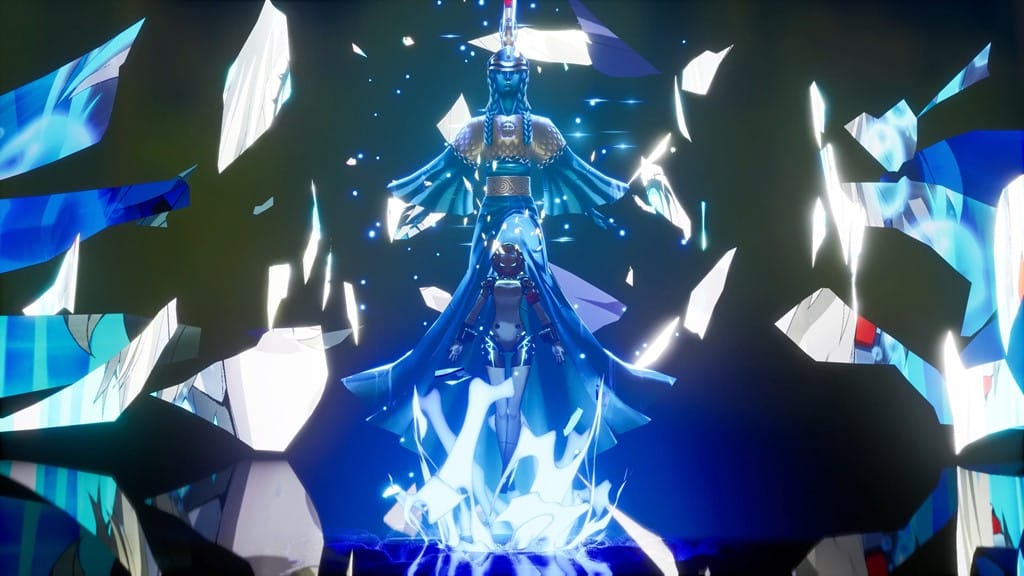

I think about my death a lot.
I would argue that it's a healthy thing to do. As humans, our lives are often spent careening toward endpoints that we neither fathom nor understand, punctuated by moments that add meaning. Much of our lives are spent facing great difficulties and challenges, whether personal setbacks or losing loved ones. While video games often exist as entertainment and escapism, sometimes they can be reminders of our mortality, urging us to wait a beat and truly take stock of what it means to be alive.
We are surrounded by death. We can choose to face it or ignore it, but neither option truly succumbs to the reality of loss.
Memento mori is a Latin phrase that means "Remember that you will die." It's an artistic mantra with roots in classical antiquity, a placeholder in art, architecture, music, and writing. Through this motif, we are meant to wrestle with our mortalities, and the phrase itself evokes the ephemeral state of human life. As humans, we often live in ignorance, knowing that death can come for us at any moment but living outside of this knowledge, refusing it wholesale as a possibility. This is why sudden and unexpected deaths feel like such intense tragedies; humans are supposed to die in their eighth or ninth decade of life, comfortably swaddled in bed, surrounded by loved ones. Anything else is considered cruelty.
We do not need regular reminders of death, but they persist despite us. Genocide, illness, accidents, misfortune—death wears many faces and is the cornerstone of religion, philosophy, ritual, and art. Death itself gives life meaning; it's this ending, this impermanence, that forces us to make difficult choices and celebrate who and what we have.
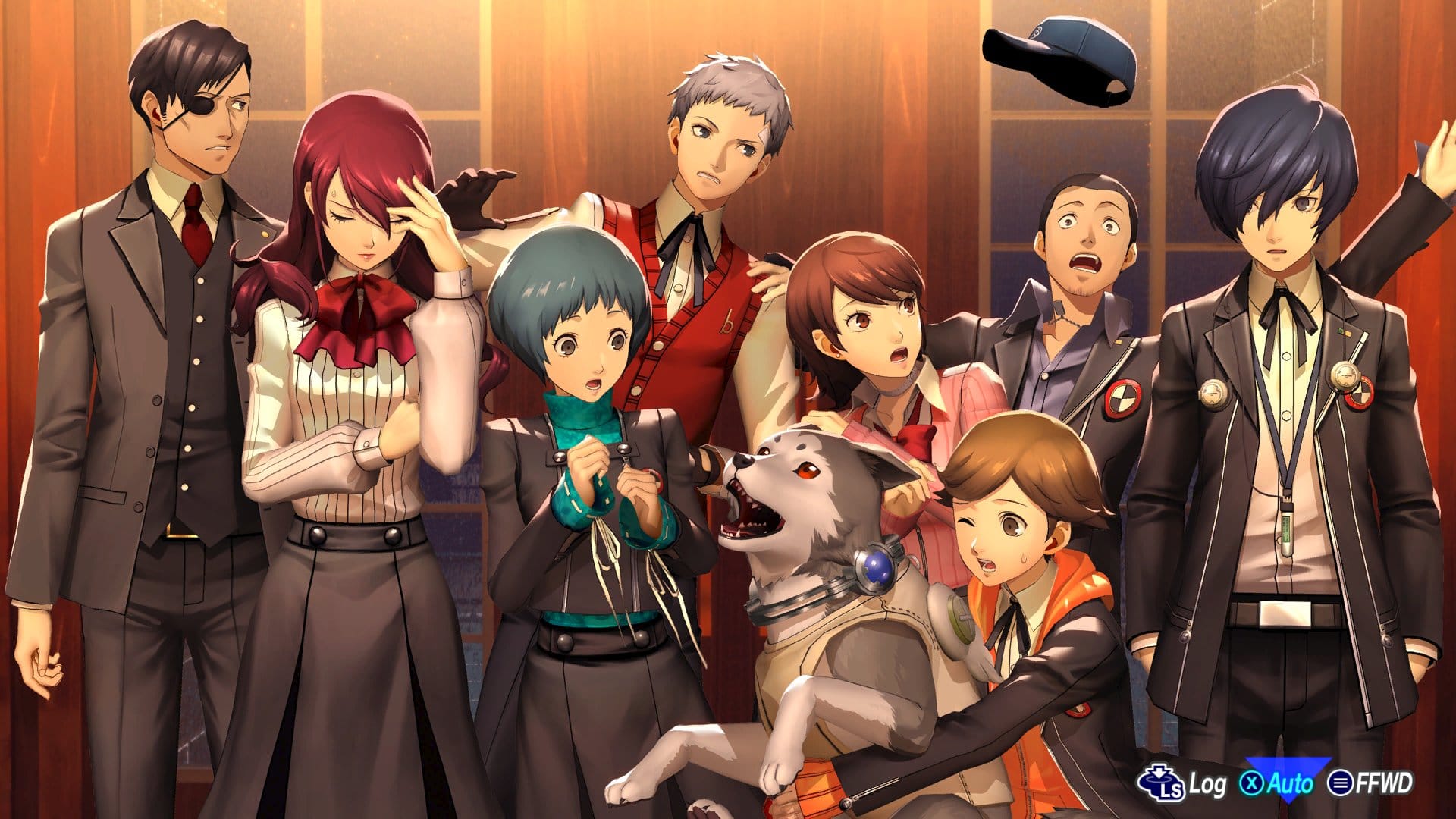
Forever and ever
Persona 3's entire spun narrative is a thread tugging at eternity. It's temporary—as a video game, we know it will eventually end; as a story, it will live on forever. This is the crux of the RPG, a genre whose run time feels so lengthy up until the point that it's not. In Persona 3 Reload (as with its previous iterations), the game conveys the temporal nature of existence right from the beginning, placing an immovable calendar on the screen that counts down the days toward goals and absolution. Our time is short, and we must make the most of it.
Death itself gives life meaning; it's this ending, this impermanence, that forces us to make difficult choices and celebrate who and what we have.
Plenty of RPGs, especially JRPGs, fixate on death. This is no surprise, as death is the philosophical cornerstone of human thought, the uncomfortable reality upon which we all pivot. The philosopher Albert Camus said famously that suicide is the only true philosophical problem, and that deciding whether or not life is worth living is the only question that matters. Persona 3 agrees with this, centering its Social Links, narrative beats, and overall story on what it means to live and to die. While it is also a game that centers its plot on the (extremely) temporary nature of high school, it utilizes this as a backdrop for its deeper philosophical quandaries. Is there a purpose to living? Is there a reason to fight against the inevitability of our deaths? And if we do choose to live, what can we do to make that life worthwhile?
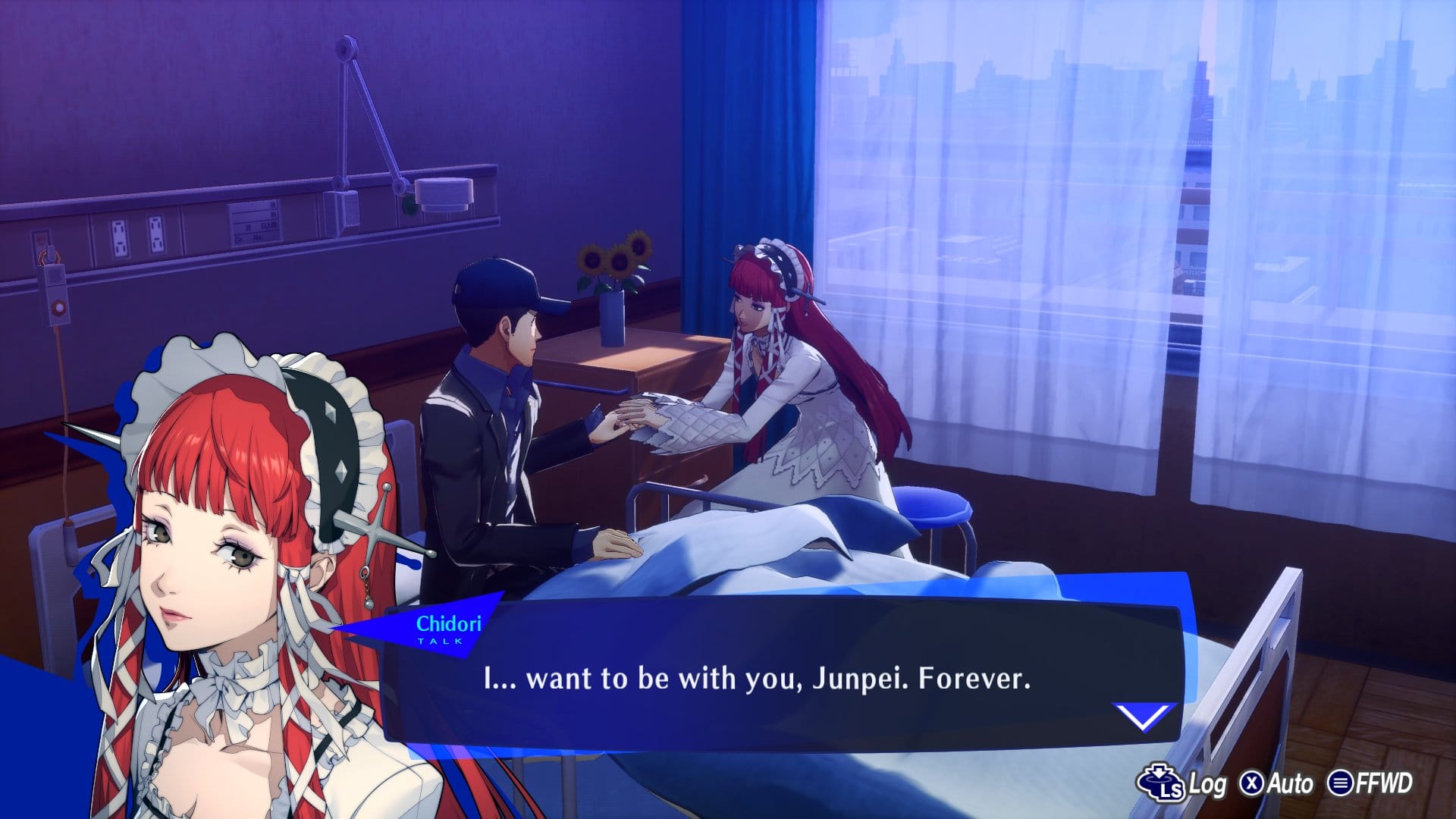
Perhaps the most tragic figure (in a game of tragic figures) in Persona 3 is Chidori, the Gothic Lolita who becomes Junpei's love and fascination. At first, Chidori is cold, awkward, and unlikeable, but it's no great mystery as to why Junpei becomes infatuated with her. She is the total opposite of his bright energy, the counterpoint to his lackadaisical nature. Junpei and Chidori are a microcosm of the relationship between life and death, and both are foundational and inevitable. Where Junpei is bright and warm, Chidori is cold and listless, but this is not the totality of their existence together. One cannot exist without the other, and even after Chidori's unfortunate end, Junpei strives to find continued meaning in the world.
We have so few reasons to continue on with life, and so many to give up. Some days it can take all the strength we have just to get out of bed. Persona 3 reminds us that facing life's challenges doesn't have to happen alone, and that only by acknowledging our ends can we come together with renewed resolve.
I'm so grateful to have met you
Death is everywhere in Persona 3. The narrative frames death as a living, breathing thing; it is characterized, and personalized. Major characters fall victim to tragedy. Both heroes and antagonists fixate on various aspects of living and dying. The protagonist carries death within him and unknowingly releases it into the world, but the being that comprises death is not evil or malignant. Instead, Persona 3 showcases a death that is ambivalent to us—it must do what it is tasked with, regardless of our desires or demands.
As humans, we want to believe that we have some sort of agency in our lives. We want to believe that our choices matter, and that free will directs our day-to-day goals and habits. We are desperate to understand our place in the world, and we want the best for ourselves and our loved ones. The reality is, that most of us do not get a choice. In the Western world, our lives are dictated by laws, corporations, bosses, habits, and necessities. We do our best to eke out moments of meaning between responsibility and tragedy, and the years pass all too fast. And compared to many others, we are the lucky ones—there are places in the world right now where choice and agency have been reduced to rubble, where entire peoples are being wiped out because of the cruelty of a very few.
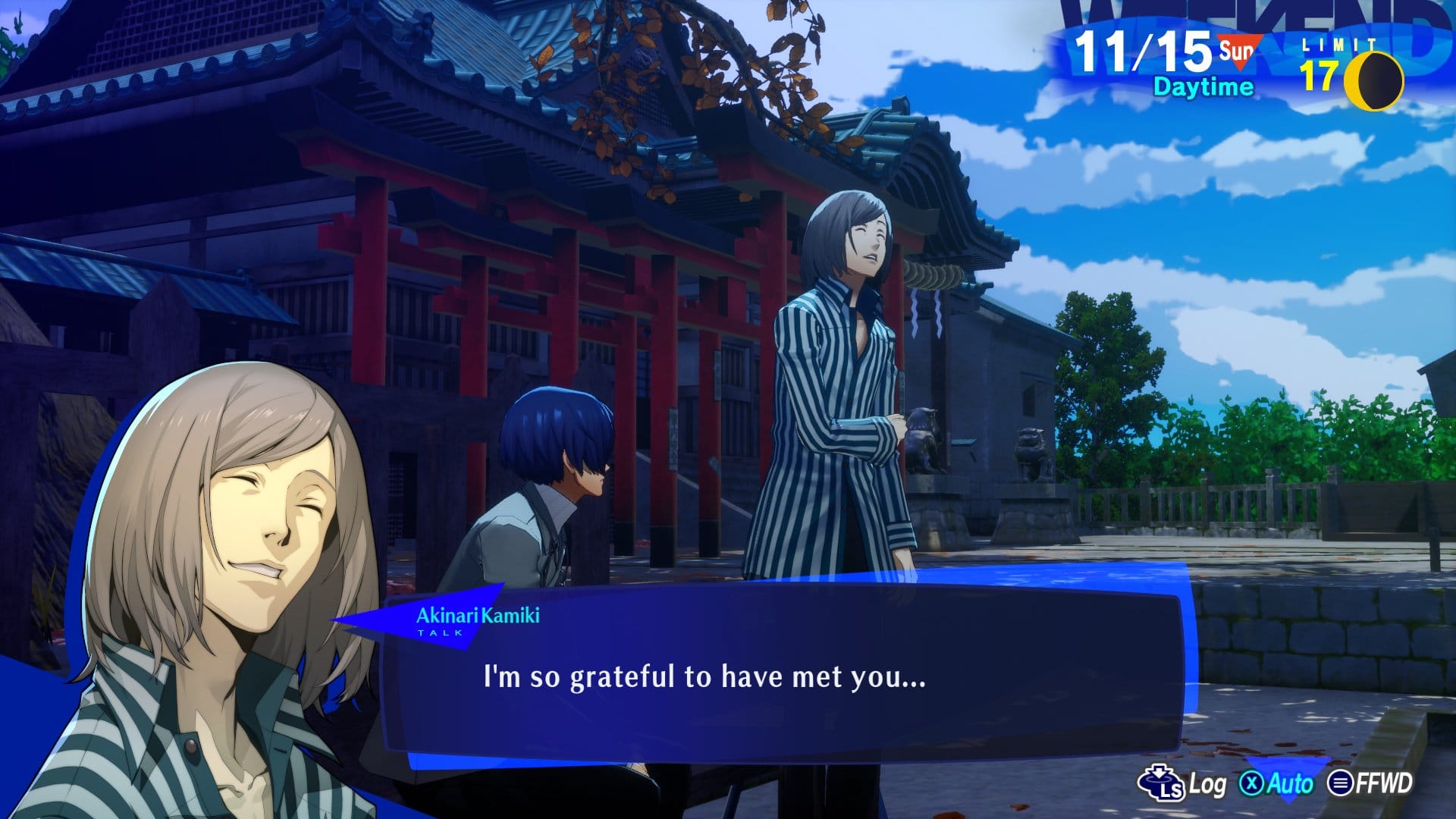
It can be difficult to keep your head up. Video games like Persona 3 feel like lighthouses between the fog and moors of hopelessness and indecision. Persona 3's characters, monumental moments, and poetic musings allow us to take a beat and reflect on what truly matters in life. The "Social Links" that comprise our individual experiences are partners, family members, coworkers, and friends. We uplift one another to make our lives better, and also to extend a bit of that kindness, hospitality, and empathy. Our lives are difficult enough, and as we march toward death, it takes very little to ensure that the people who surround us are cared for. When tragedy strikes it is sudden, unexpected, and unfair.
When my uncle passed away a few years ago, it was shocking. He was in his early 50s, full of life, and left children and loved ones behind. It didn't feel fair then, and it doesn't feel fair now. A few years after that, when I was working in a restaurant, our chef passed away. It was sudden and completely unexpected. How could someone so young and so full of promise just be gone? What could I do with these feelings? How could I be expected to continue with my own life, callously, in the face of someone else's death?
Video games like Persona 3 feel like lighthouses between the fog and moors of hopelessness and indecision.
There have been others. Grandparents. Friends. Acquaintances. People die, and the only thing left of them is memory. Eventually, that fades as well, and people are flattened and reduced to material things. It is by no accident that when you complete a Social Link in Persona 3 you are rewarded with a permanent Key Item that summarizes your relationship with that person. It's an icon, a magicked piece of them to keep and hold onto. It's a reminder of who they were, and even the smallest material items gain immense power when they are emboldened by the spirit of those we love. As we get older it becomes increasingly difficult to part with these small things that provide meaning in our cluttered lives—these items are not a reminder of a person's death, but of their life.
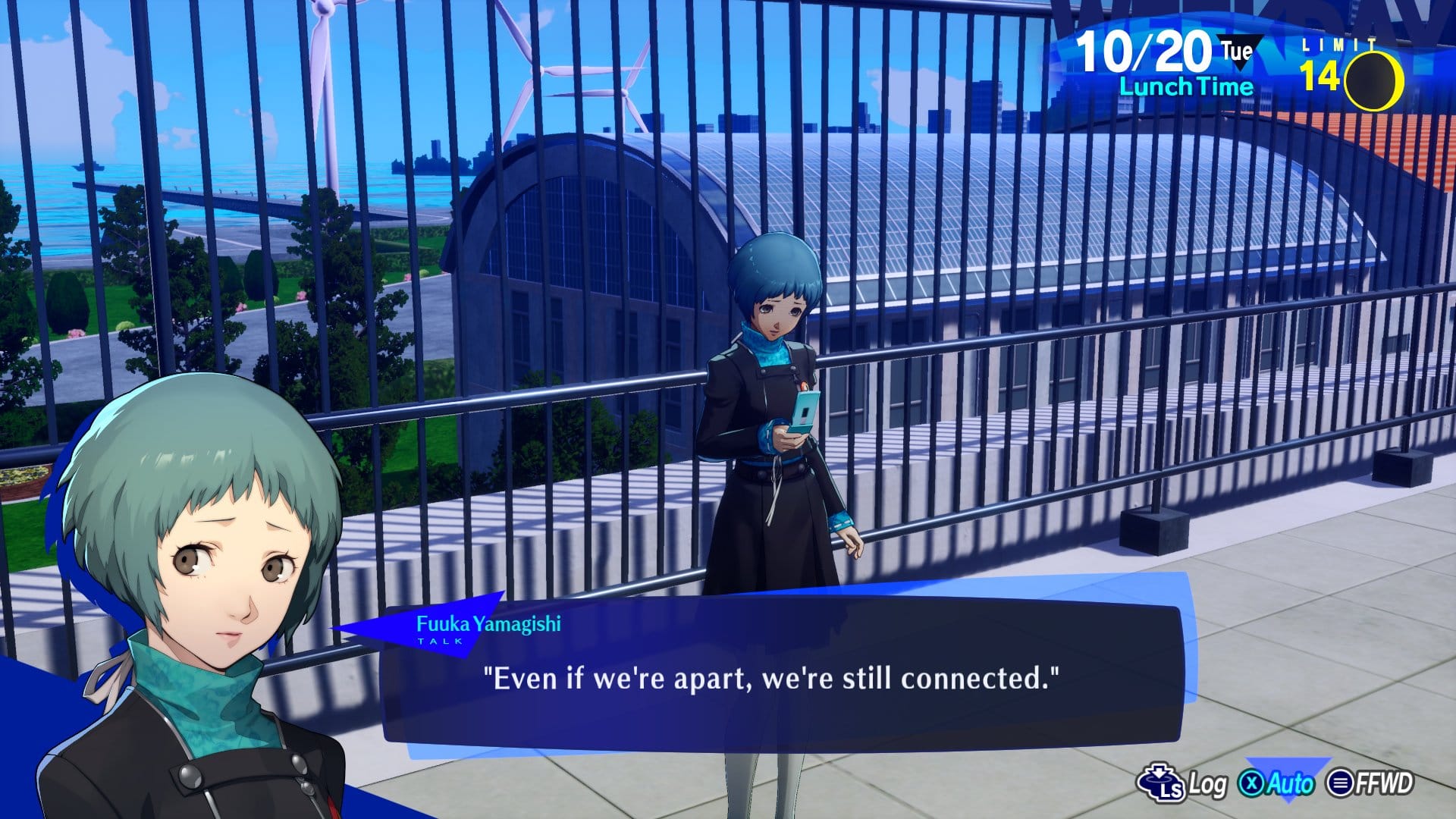
The answer
Throughout Persona 3's lengthy narrative, it is Aigis who is most fascinated by the meaning of life. As a machine, she thinks of herself as an "other" in relation to the (mostly) human party. The philosophical quandary speaks for itself: Aegis might be a machine, but her personhood grants her the same mortal flaws and characteristics as a living person. She claims that she is not a girl but only a body of metal parts and pieces, yet this is not so dissimilar to the human condition. We are specially arranged constructions of muscle and bone, and our personalities are almost entirely formed by outward characteristics.
Aigis slowly learns that it's who you are that matters. As she spends time with the party, and more importantly the protagonist, she learns that the meaning of life is more complicated than any single answer. At the game's finale, after the protagonist has used the last of his life energy to seal Nyx away and save all those he loves, Aigis holds him and vows to protect him. It's bittersweet: she knows that the end is coming, but that doesn't forestall her promise. She sees the meaning and beauty of life in all its complications, ugliness, and cruelty. Forging ahead isn't about reaching some imaginary destination, but about prolonging the time you have so that you can make the most of it alongside those you love.
As Aigis tearfully holds the protagonist in his final moments and the remainder of our party races to the rooftop, their fog of amnesia dissipated by his waning, we are not only struck with sadness but with hope. We will meet together again—sometime, somewhere.
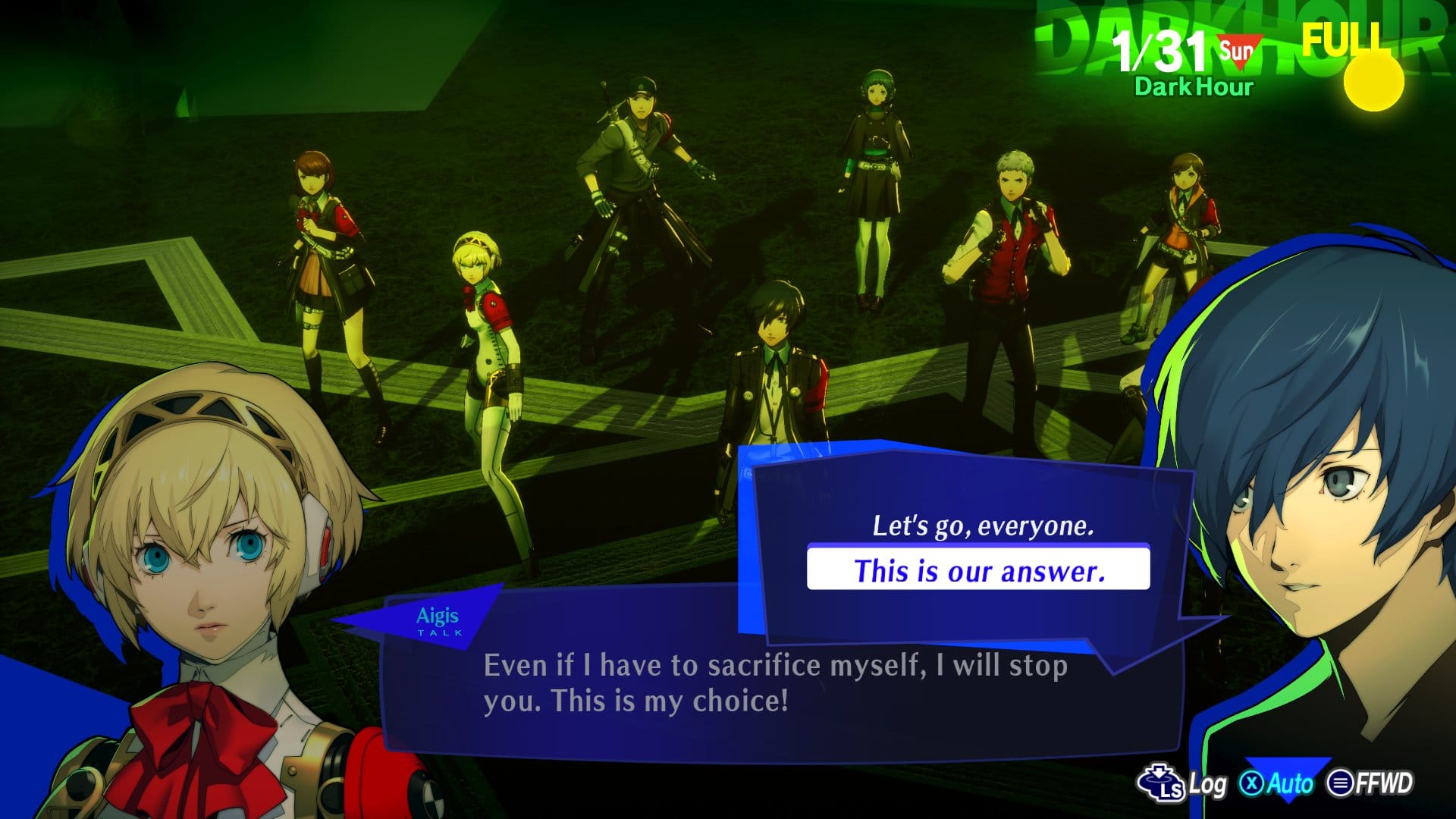
I will be the first to admit that I regularly take the good moments for granted. When you look back on your life, those fleeting moments are the only thing that will stand out against snapshots of otherwise unremarkable feats. I close my eyes and I relish in vacations, birthdays, and celebrations. Like Persona 3, we cannot fixate on the tragedies that befall us. We do the best we can because there is nothing else.
We all face immense challenges in this life. I would be lying if I said I've never thought about suicide. I would be lying if I said that I do not obsess over death. Sometimes the feelings associated with death become so claustrophobic that it takes all we have just to escape and look for renewed meaning. Persona 3 grants us that small, fragile moment of escape. It's not just a video game, it's a philosophical celebration of what it means to live, an exploration into the only question that matters.
"Remember that you will die" is not only a mantra; it is a focus. Do you know that you will die? And what will you do with the time you have left?
As I write this, part of the world continues to face one of the largest acts of cruelty ever imposed on a people. Together, we have faced innumerable acts of despicable violence, suffering, and tragedy in the 21st century. Between the original release of Persona 3 and now, humankind has inflicted horrendous and unspeakable measures of death upon itself. For many of us, these moments can be difficult to process. As our meager lives march on, and as we continue to deal with the physical and psychological effects of these tragedies, it's important to remember that you can always reach out to those around you for companionship and support. You are loved. You are not here alone.
